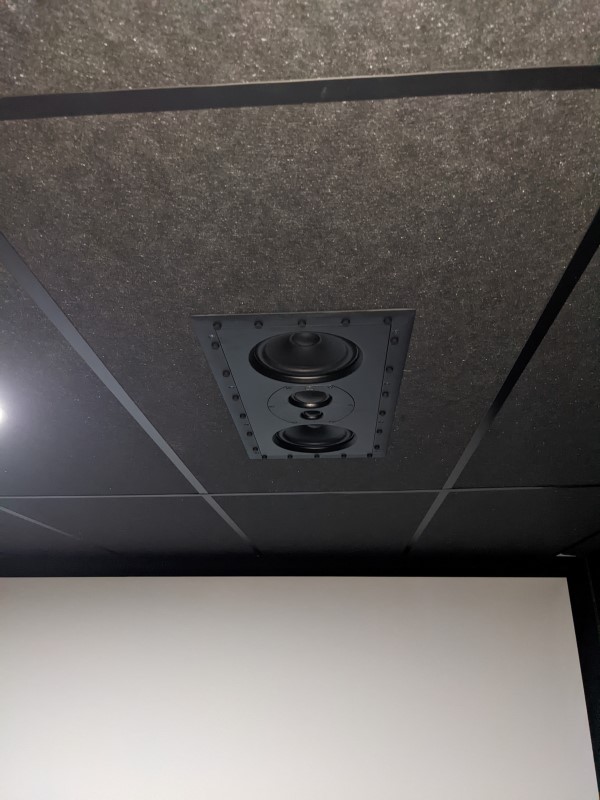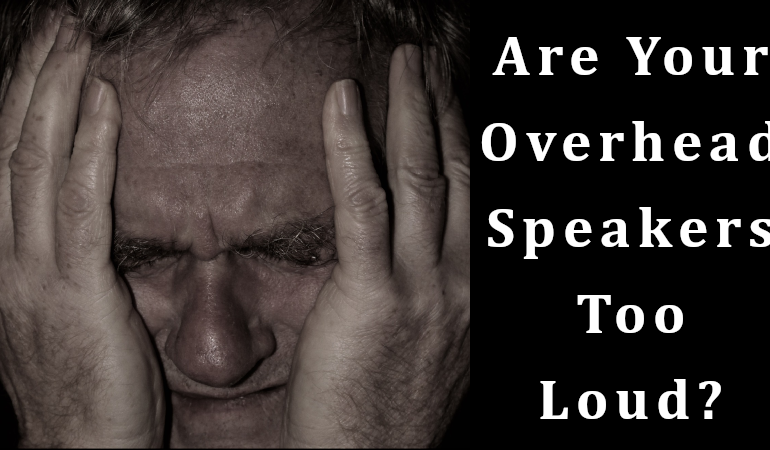Why Are Your Height or Overhead Speakers Too Loud?
You are so excited! You finally added some height or overhead speakers so that you can experience Atmos and DTS:X. Object-based audio is now yours to enjoy! But something seems to be amiss. These new overhead speakers? They seem to be overly loud. Sure, you want to hear them, but should your height or overhead speakers be this loud? Let’s discuss!
Double-Check Your Room Correction
When you installed your new height or overhead speakers, you should have re-run your room correction program. If you didn’t, that could be your problem right there. Even if you did, it is possible for you to get erroneous results. If things don’t sound right (like your height or overhead speakers being too loud), then step one would be to run it again. Make sure you pay very close attention to how you set up the microphone. Improper microphone positioning is the number one reason, in our experience, for poor room correction results.

Test With Other Content
If you are watching a movie or show and suddenly notice how loud your height or overhead speakers are, consider it might just be the content. Some shows just go ham with surround effects while others are much more subtle. If you are noticing your overhead or height speakers playing too loud on one movie, check with another. Just remember that now that you are noticing your speakers, you might be more sensitive to them.
Are You Using DTS Neural:X Upmixing?
You didn’t install height or overhead speakers not to use them! When your content isn’t natively Atmos or DTS:X, you can use an upmixer to send sounds to all the other speakers in your system. There are three main upmixers that may be available to you: Dolby Surround, DTS Neural:X, or Auro-3D. While they all do the same thing which is to send sounds to all your speakers, they don’t do it in the exact same way. DTS Neural:X, in particular, tends to make the overhead and height speakers very loud.
You can use our guide to help you change the upmixer you are using. Try one of the others and see if your height or overhead speakers don’t seem quite as loud. This alone may solve the problem. Lastly, remember that you need to verify the correct upmixer on not just every input, but every type of audio codec. Most receivers will have a default and there is no way to tell it that you want all upmixing to be done by one upmixer. You have to change it every time a new audio codec is detected. Once you do, it will remember.


